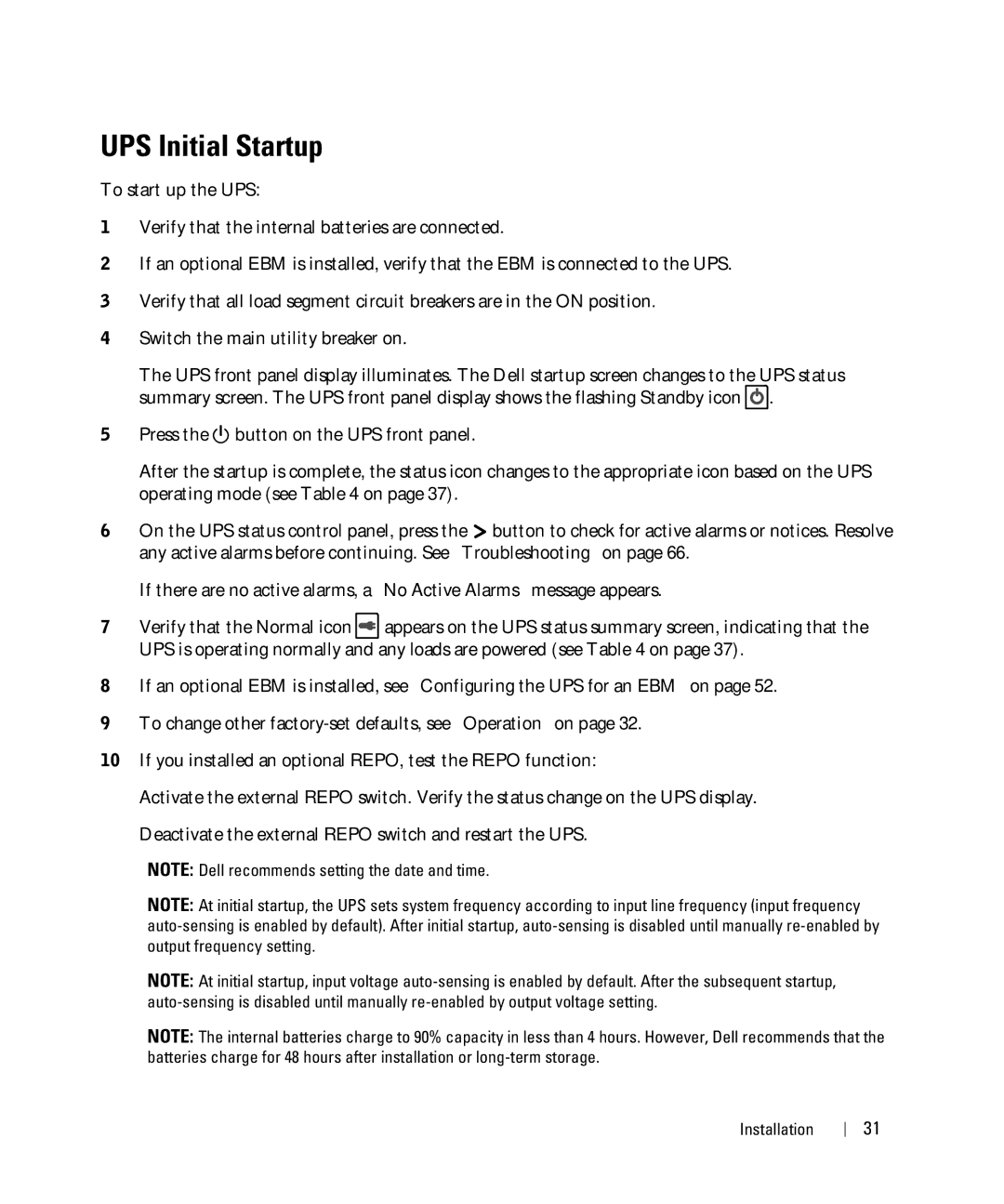
UPS Initial Startup
To start up the UPS:
1Verify that the internal batteries are connected.
2If an optional EBM is installed, verify that the EBM is connected to the UPS.
3Verify that all load segment circuit breakers are in the ON position.
4Switch the main utility breaker on.
The UPS front panel display illuminates. The Dell startup screen changes to the UPS status summary screen. The UPS front panel display shows the flashing Standby icon![]() .
.
5Press the ![]() button on the UPS front panel.
button on the UPS front panel.
After the startup is complete, the status icon changes to the appropriate icon based on the UPS operating mode (see Table 4 on page 37).
6On the UPS status control panel, press the ![]() button to check for active alarms or notices. Resolve any active alarms before continuing. See “Troubleshooting” on page 66.
button to check for active alarms or notices. Resolve any active alarms before continuing. See “Troubleshooting” on page 66.
If there are no active alarms, a “No Active Alarms” message appears.
7Verify that the Normal icon![]() appears on the UPS status summary screen, indicating that the UPS is operating normally and any loads are powered (see Table 4 on page 37).
appears on the UPS status summary screen, indicating that the UPS is operating normally and any loads are powered (see Table 4 on page 37).
8If an optional EBM is installed, see “Configuring the UPS for an EBM” on page 52.
9To change other
10If you installed an optional REPO, test the REPO function:
Activate the external REPO switch. Verify the status change on the UPS display.
Deactivate the external REPO switch and restart the UPS.
NOTE: Dell recommends setting the date and time.
NOTE: At initial startup, the UPS sets system frequency according to input line frequency (input frequency
NOTE: At initial startup, input voltage
NOTE: The internal batteries charge to 90% capacity in less than 4 hours. However, Dell recommends that the batteries charge for 48 hours after installation or
